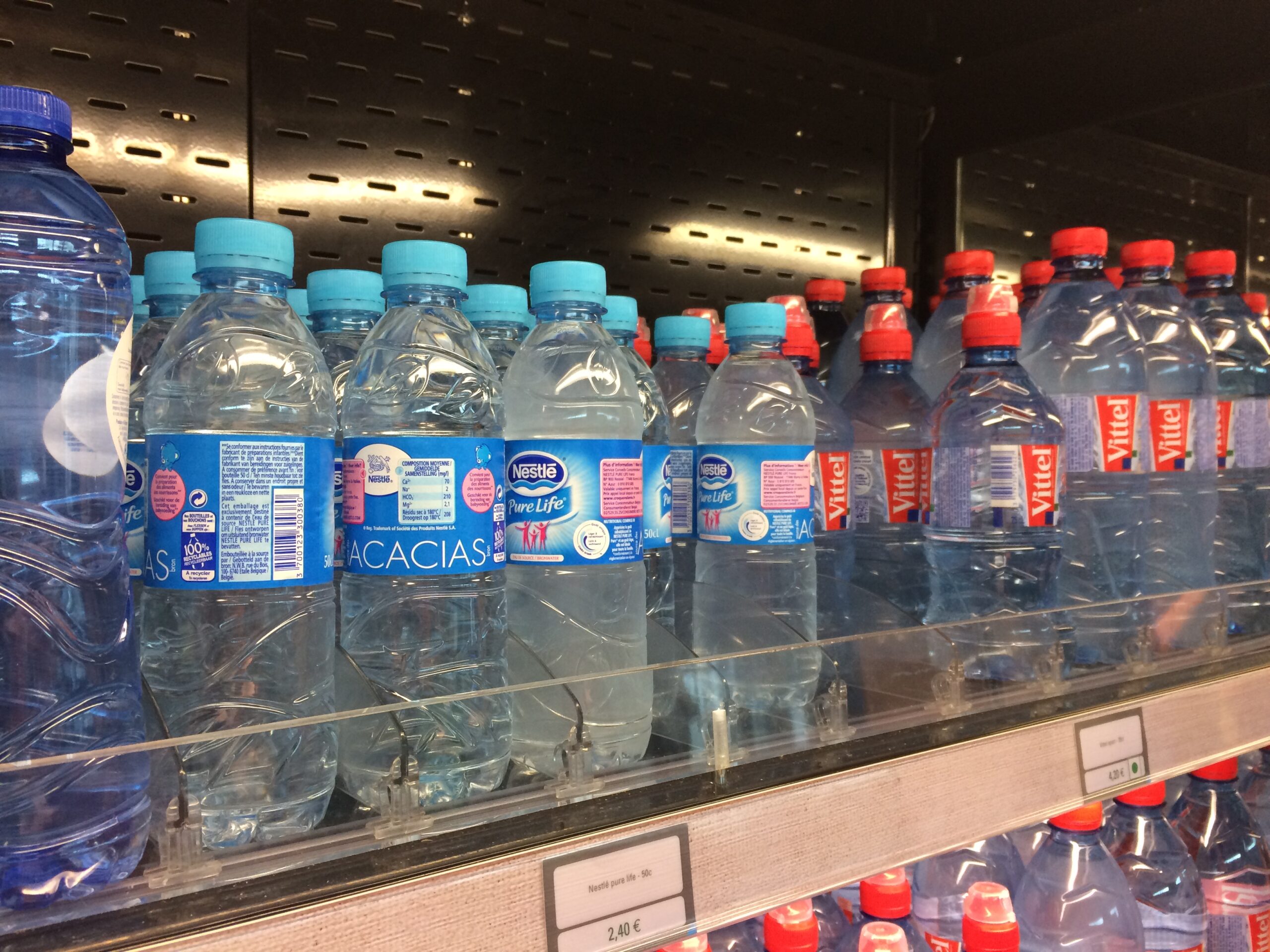
French bottled water, 2016. Credit: Raul Pacheco-Vega, CC BY-NC-ND 2.0
AGU News
Register to attend the Triennial Earth-Sun Summit during the eclipse!
The Triennial Earth-Sun Summit (TESS) will be held 7-12 April in Dallas, Texas, in the path of totality. Scientific programming begins on 9 April, the day after the eclipse. To register, simply email us at [email protected]. Scientific sessions are on-site only. AGU’s housing is full. [TESS website][scientific program]
Featured Research
Bottled water drinkers underestimate price markup over tap
In France, bottled water costs 100 times the price of tap water. But bottled water drinkers are more likely than tap drinkers to perceive this gap to be much smaller, according to a new analysis of 4,003 survey responses. [Water Resources Research]
Canadian taiga will burn hotter and more frequently this century
Warming temperatures and drying can be expected to contribute to rising fire danger and severity throughout Canada’s coniferous forests through the end of century if greenhouse gas emissions continue unabated, a new study based on fire trends from 1976 to 2014 and the latest climate models finds. [JGR Atmospheres research]
Solar Orbiter predicts incoming solar storms
Bursts of plasma from the Sun called coronal mass ejections can damage Earth’s satellites and electric grids. Many of these problems can be avoided with warning of incoming storms, but current models aren’t good at forecasting arrival times and severity. Data from the Solar Orbiter demonstrated for the first time how spacecraft orbiting halfway between Earth and the Sun could improve forecast accuracy and precision, predict the evolution of geomagnetic storms and provide 40 hours of advance warning. [Space Weather research]
Extreme reservoir water drawdowns, accelerated by climate change, bring environmental drawbacks
Changing climate and water demands are causing more frequent extreme swings in water levels for many lakes, especially human-made reservoirs. A case study at Beaverdam Reservoir in Virginia, USA, tracked impacts on biology, chemistry and aquatic physics during a rapid 36% volume loss over only a single month. Nutrients concentrated at the surface, feeding an algae bloom that dropped oxygen levels as the bloom died. [JGR Biogosciences research]
Urban nature is often plentiful but inaccessible
A novel research framework deepens understanding of urban nature accessibility and highlights progress toward green space goals.. [Eos research spotlight][GeoHealth research]
Preparing to meet a metal-rich asteroid
The recently launched Psyche mission will explore the eponymous asteroid and determine whether it is a fragment of a planetary core or a primordial, metal-rich body. [Editors’ highlight][AGU Advances research]
Visit the AGU Newsroom to read about the latest science from AGU’s 25 journals, get updates about our organization, register for complimentary press access to AGU journals, and find topical experts. Update your subscription preferences.
AGU (www.agu.org) is a global community supporting more than half a million advocates and professionals in Earth and space sciences. Through broad and inclusive partnerships, AGU aims to advance discovery and solution science that accelerate knowledge and create solutions that are ethical, unbiased and respectful of communities and their values. Our programs include serving as a scholarly publisher, convening virtual and in-person events and providing career support. We live our values in everything we do, such as our net zero energy renovated building in Washington, D.C. and our Ethics and Equity Center, which fosters a diverse and inclusive geoscience community to ensure responsible conduct.